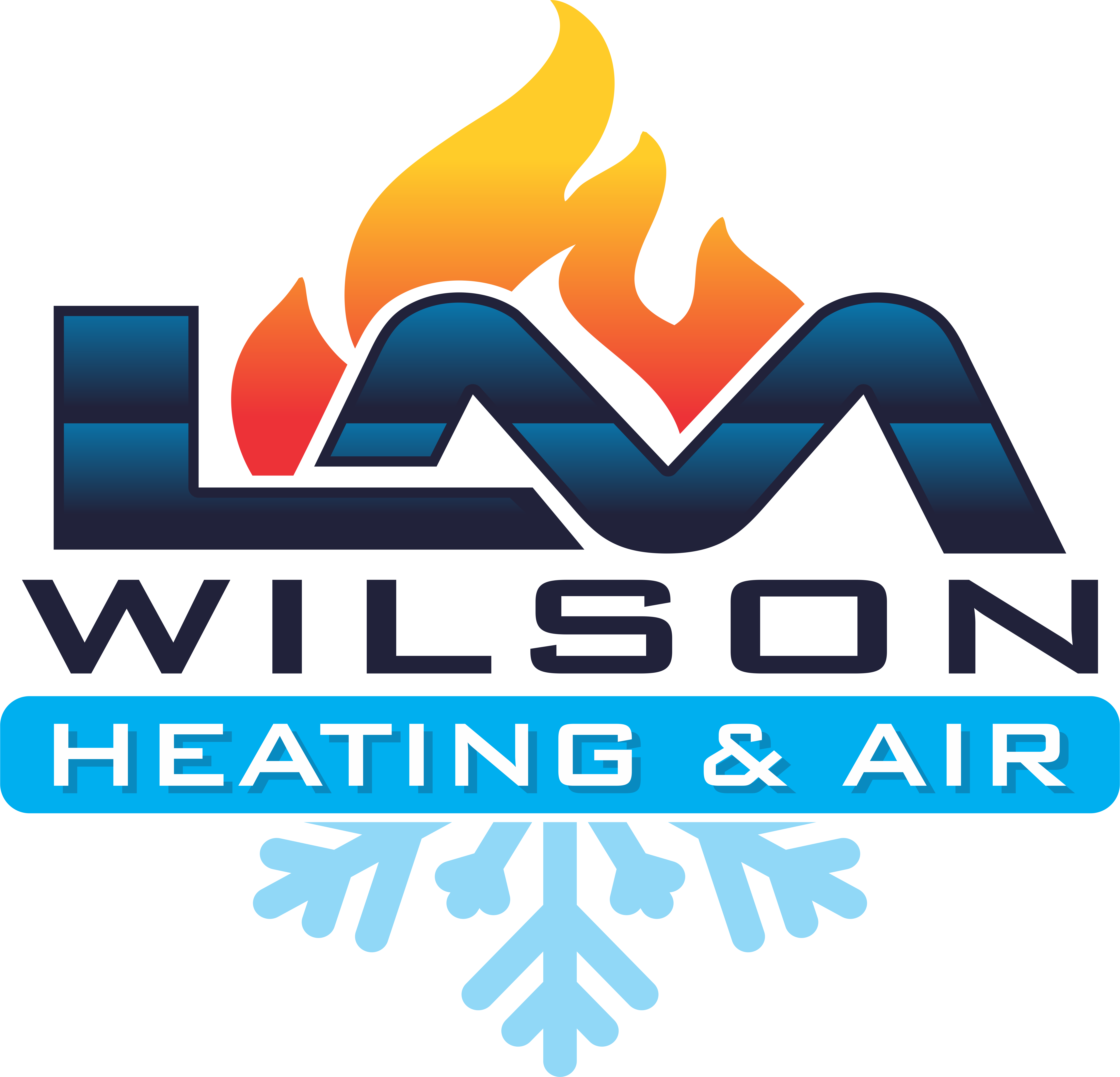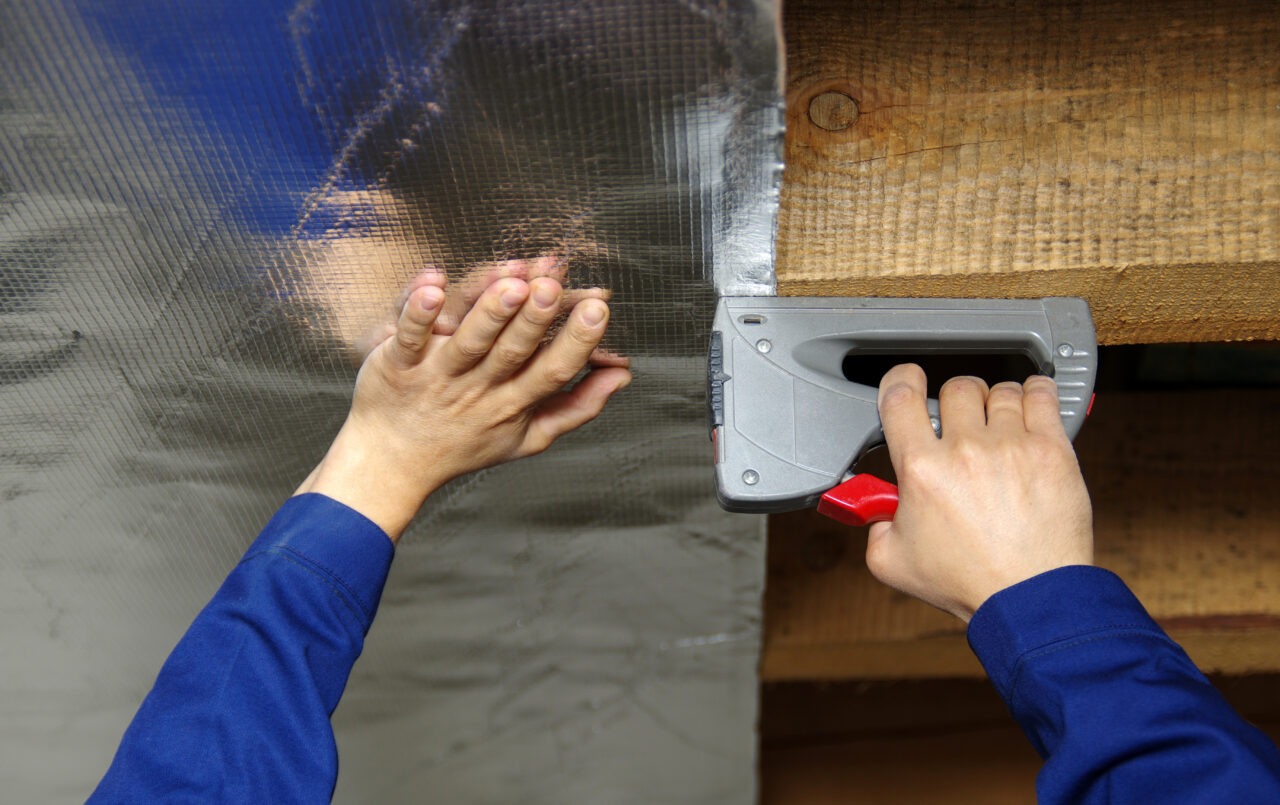In regions like the Southeastern United States, where humid subtropical climates prevail, managing moisture in your attic is important to safeguarding the structural integrity of homes and ensuring indoor comfort. In this comprehensive guide, we explore the question: “Do I Need a Vapor Barrier in the Southeast US?” and shed light on the benefits and considerations for homeowners in this region.
What is a Vapor Barrier?
Vapor barriers are materials installed within the building envelope to control the movement of moisture vapor. In humid climates like the Southeastern US (such as here in North Carolina), high humidity levels, frequent rainfall, and occasional tropical storms contribute to moisture-rich environments, posing challenges for homeowners in managing indoor humidity levels. Moisture infiltration is often a significant concern due to mold and rot, and vapor barriers play a crucial role in mitigating problems within the home. By limiting the diffusion of water vapor through building materials, vapor barriers help prevent moisture accumulation within wall cavities, attics, and crawl spaces, thereby reducing the risk of mold growth, wood rot, and structural damage.
Benefits of Vapor Barriers in the Southeast US
Installing a vapor barrier in homes located in the Southeast US offers several key benefits:
Moisture Control: The primary function of vapor barriers is to control moisture infiltration, particularly in areas with high humidity levels. By preventing water vapor from permeating through building materials, vapor barriers help maintain optimal indoor humidity levels, reducing the risk of mold, mildew, and moisture-related damage.
Mold Prevention: Mold thrives in moist environments, making homes in humid climates susceptible to mold growth. Vapor barriers create a barrier against moisture, inhibiting the conditions conducive to mold proliferation and safeguarding indoor air quality.
Structural Integrity: Excessive moisture infiltration can compromise the structural integrity of a home over time, leading to wood decay, rot, and other forms of structural damage. By acting as a moisture barrier, vapor barriers help preserve the durability and longevity of building materials, ensuring the long-term stability of the home.
Energy Efficiency: In addition to moisture control, vapor barriers can contribute to energy efficiency by reducing the workload on heating and cooling systems. By minimizing moisture infiltration, vapor barriers help prevent heat loss in the winter and heat gain in the summer, improving the overall thermal performance of the home and lowering energy consumption.
Should I Install a Vapor Barrier?
While vapor barriers offer significant benefits for homeowners in the Southeast US, several factors should be considered when determining the necessity of installation:
Climate Variability: While the Southeast US generally experiences a humid subtropical climate, local climate variations exist within the region. Homes located in coastal areas or regions with higher average humidity levels may benefit more from vapor barrier installation than those in inland or drier areas.
Building Design and Construction: The effectiveness of vapor barriers depends on factors such as building design, construction materials, and ventilation systems. Homes with well-sealed envelopes and proper ventilation may require less extensive vapor barrier installation than older or poorly constructed structures.
Moisture Sources: Identifying potential sources of moisture infiltration within the home is crucial for determining the need for vapor barriers. Common sources of moisture include plumbing leaks, inadequate ventilation, and improper drainage systems. Addressing these issues in conjunction with vapor barrier installation can maximize moisture control effectiveness.
The decision to install a vapor barrier in the Southeast US depends on various factors, including climate, home construction, and moisture management goals. However, given the region’s humid subtropical climate and the potential benefits of moisture control, vapor barriers can be a valuable investment for homeowners seeking to protect their homes from moisture-related issues and improve indoor air quality.
For residents in North Carolina looking to explore vapor barrier installation options, LM Wilson Heating & Air offers expert solutions tailored to your specific needs. Contact us today at (336) 663-1370 to schedule a consultation and take the first step toward a drier, healthier home environment. With LM Wilson Heating & Air, you can trust in our expertise to provide comprehensive moisture management solutions, tailored to your home’s unique requirements.


